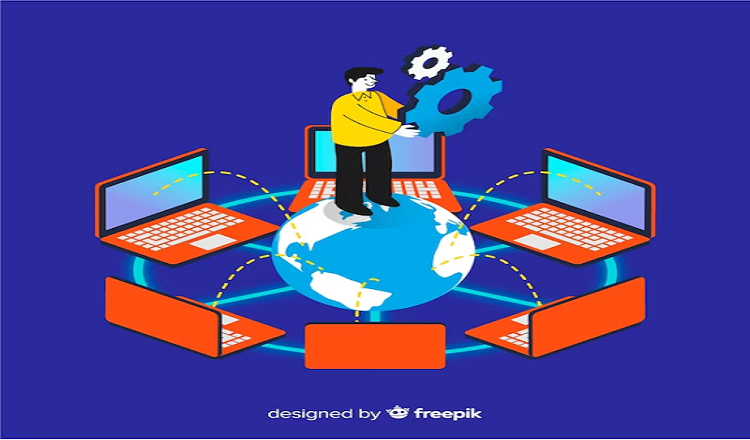The intriguing and quickly developing science of quantum computing has the potential to completely change how we approach some of the most challenging challenges in existence. Quantum computers have the ability to do calculations that are now beyond the reach of even the most powerful classical computers, from simulating chemical reactions to breaking encryption protocols. However, what precisely is quantum computing, and what recent advancements have been made in this area?
Fundamentally, quantum computing employs the laws of quantum mechanics to conduct calculations with quantum bits, or qubits, as opposed to conventional bits. Because qubits can be in numerous states at once, quantum computers can perform some operations tenfold faster than conventional computers. Although there has been substantial progress recently, especially in the United States, the creation of usable quantum computers is still in its early phases.
Some of the top businesses and research institutions engaged in quantum computing are based in the United States. These businesses, ranging from Google to IBM, are creating and scaling quantum hardware, algorithms, and applications. Quantum computing innovations have the potential to impact a variety of sectors, including finance and healthcare, as well as tackle some of the most important global issues, like climate change. As a result, it’s crucial to stay informed about the most recent advancements in the industry. In this blog, we’ll examine some of the most intriguing quantum computing innovations in the USA. So let’s get started!
Hardware for quantum computing
Hardware for quantum computing has significantly advanced in recent years, with American businesses and academic organisations leading the way. Leading companies like IBM, Google, and Microsoft have made significant advancements in the development of quantum hardware, including the development of qubits with better reliability and longer coherence durations. With their distinct approaches to quantum computing, businesses like Rigetti and IonQ have moreover become industry leaders in the creation of quantum hardware.
By enabling quicker and more potent quantum calculations, these hardware innovations have the potential to completely transform the area of quantum computing. For instance, the creation of fault-tolerant quantum hardware may open the door to usable quantum computers that can address issues that are currently intractable by classical computing. Additionally, improvements in quantum hardware might inspire the creation of more effective algorithms and software, releasing the full potential of quantum computing.
Software and quantum algorithms
In the USA, recent years have witnessed notable advancements in quantum algorithms and software in addition to hardware development. Significant progress has been made in the production of quantum software by companies like Google, IBM, and Microsoft, including the development of quantum programming languages and quantum machine learning algorithms. Additionally, research centres like MIT and the University of California, Berkeley are advancing the capabilities of quantum algorithms and software.
Numerous industries, including finance and healthcare, could be completely transformed by these developments in quantum algorithms and software. For instance, banks and other financial institutions can use quantum computing to optimise their portfolios and carry out intricate financial calculations. Quantum algorithms in healthcare can facilitate more precise drug development and protein folding simulations, resulting in new disease treatments. Overall, these advancements in quantum software and algorithms are essential for realising the full promise of quantum computing and spurring innovation across numerous industries.
Quantum technology and encryption
In the USA, there have been substantial developments in quantum communication and cryptography in recent years. Leading businesses and academic institutions are creating secure quantum communication systems that can shield data from eavesdropping and modification, including IBM and the National Institute of Standards and Technology. These systems are resistant to conventional cryptographic attacks because they use quantum key distribution (QKD) protocols to assure secure information delivery.
Quantum cryptography and communication have a huge potential impact on cybersecurity. Secure quantum communication systems can offer a crucial line of defence against data breaches and cyber espionage in light of the increased threat of cyberattacks. Quantum cryptography can also be used in other fields where secure communication is crucial, like finance and government. In order to protect sensitive information and uphold confidence in our digital environment, quantum communication and cryptography are essential.
Quantum modelling and simulation
The study of quantum simulation and modelling is a young topic with many potential applications in daily life. Leading American institutions working on quantum simulation techniques and applications include Google, IBM, and the University of California, Berkeley. These simulations can be utilised, among other things, to resolve challenging issues in the fields of materials research and drug discovery. Quantum simulation is also being used by research organisations like the Department of Energy and the Lawrence Berkeley National Laboratory to explore and create new materials with unusual features.
Quantum simulation and modelling have numerous possible uses. For instance, the creation of novel materials by quantum simulation may have profound effects on sectors like electronics and renewable energy. Quantum simulation can help in drug discovery by enabling more precise predictions of drug interactions, resulting in more potent therapies. In general, quantum simulation and modelling have the potential to fundamentally alter how we tackle difficult problems, and continuous study in this field is essential to realising the full potential of quantum computing.
Workforce and Education in Quantum Computing
In the USA, there is now a demand for a competent workforce due to the development of quantum computing. Thus, there has recently been a drive to increase the number of educational and training programmes in quantum computing. Leading companies like IBM and Microsoft are cooperating with colleges to create curriculum for quantum computing, and programmes like the Quantum Economic Development Consortium are attempting to create a workforce that is prepared for using quantum technology. The development of research and instruction in the field is also a priority for institutions like the Quantum Computing Institute and the Quantum Information Science Research Centre.
It is imperative to train a workforce capable of using quantum computing. The need for experts with the knowledge and abilities required to design, develop, and implement quantum solutions will increase as quantum computing advances. Building a strong and long-lasting quantum workforce that can promote innovation and advancement in this fascinating discipline requires financial investment in education and training programmes in quantum physics.
Future Prospects
Future developments in quantum computing have the potential to revolutionise numerous businesses and society at large. Future developments in quantum computing could involve the invention of fault-tolerant quantum machines, novel quantum algorithms, and more effective and potent quantum hardware. The field must continue to invest in research and development and must also discover useful applications for quantum computing, among other difficult tasks.
Quantum computing may have a significant effect on both society and the economy. Quantum computing has the potential to revolutionise a wide range of industries, from boosting medical research to increasing energy efficiency. To fully realise the potential of this disruptive technology, however, would require ongoing cooperation between government, industry, and academics. Overall, quantum computing has a promising future, and more study and innovation are needed to realise this technology’s full potential.
Read More You May Like:











